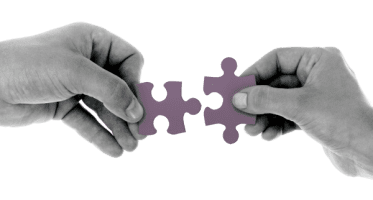Impact Hub Basel’s October event, “What are the needs of social entrepreneurs,” opened conversation on a surprising topic–outside of these monthly events, there are too few places for social entrepreneurs to meet and talk to each other.
What’s the problem?
This might seem like an issue with a simple solution (just hold more events), but in a multi- cultural and multi-lingual city like Basel, creating a suitable space is laborious.
With over a third of Basel’s population being foreign-born, such groups need to have uncommon flexibilities: communicating both in German and English (sometimes French), addressing sustainability concerns general enough to engage everyone, and having sufficient financial means to survive high operating costs. And to add to these complex demands, these networks need to involve people interested in sustainability and entrepreneurship.
Non-profit social entrepreneurs face larger obstacles to success as well, compared to their purely profit-making, and impact investing counterparts. (Impact investing has its own difficulties too, but the dual model–where financial and social/environmental returns are emphasized equally–allows for easier access and understanding. The catchy tagline, “doing well by doing good,” certainly helps too). Founders do not just struggle with financial support, but usually lack solid knowledge on pitching their idea effectively, marketing their product efficiently, and gaining access to the most helpful stakeholders. Generating meaningful impact is the primary goal of a social business, so without a dependable network, achieving that goal is next to impossible.
Well, what do we have here?
The existence of local support systems, such as seif, a social entrepreneurship booster based in Zurich, show that enough demand for such places exists in Switzerland. Valuable resources within an hour train ride are steps in the right direction, but none fully encompass the prominence of Basel’s multi-cultural identity.
As well, Basel is home to an incredible treasure trove of multi-national corporations, many of which welcome CSR and sustainability ideas. Partnering with the foundations of these companies, for example, could be a great way to increase impact. The social enterprise benefits from the foundation’s reach, toolset, and funding, while the foundation gains from the enterprise’s unique know-how, innovation, and energy. That said, meaningful connections to these foundations are rare.

Every problem has at least one solution, that’s a fact
Take, for example, successful social non-profits whose business models are based on community engagement. In the four-ish years I’ve been involved in the Thought For Food (TFF) Foundation, an Impact Hub Basel partner, the TFF community has grown to include 12,000 entrepreneurs, industry experts, students, young professionals, and thought leaders in the realm of food security in 160 countries. And many of these countries have vast sub-groups led by local internal leaders. Clearly, social entrepreneurs have a hunger for these global and local networks.
Can we get back to Basel please?
A simple idea that depends greatly on execution – bringing people together. Focusing just on social entrepreneurs themselves, creating multi-lingual advice groups on social media for local entrepreneurs to share events and insight could be a solution. Finding long-term support to moderate discussion and spear-head the initiative would be the direct challenge, as well as
reaching and recruiting both new and established social businesses to take part. Allowing for more fluid communication among these innovators could lead to collaborative success, mental support (being a social entrepreneur is not for the faint of heart), and significant increases in awareness of local offer. It is not lost on me though that this article is written only in English.
In the same vein, if communication streams could open between social entrepreneurs and the private sector (whether formally through coaching or casually through social media), as well as with other relevant stakeholders (consumers, public entities, research institutes, etc.), many “harder-to-reach” needs could be fulfilled. Social entrepreneurs would have a way to pinpoint
and develop their unique strengths, figure out the needs of customers, and maybe find more opportunities for networking and monetary support, without going full “Shark Tank.”
How do you think Impact Hub Basel (IHBS) fits in?
If you made it through to the end of this post, you are definitely dedicated to the topic. Community building and diversity inclusion are two of IHBS’s strengths, and get more powerful with every event. With such a wealth of knowledge in so little space, how can we make IHBS a better place for social entrepreneurs?
We definitely want hear from you. Engage with us and let us know!
Caroline Steiblin
